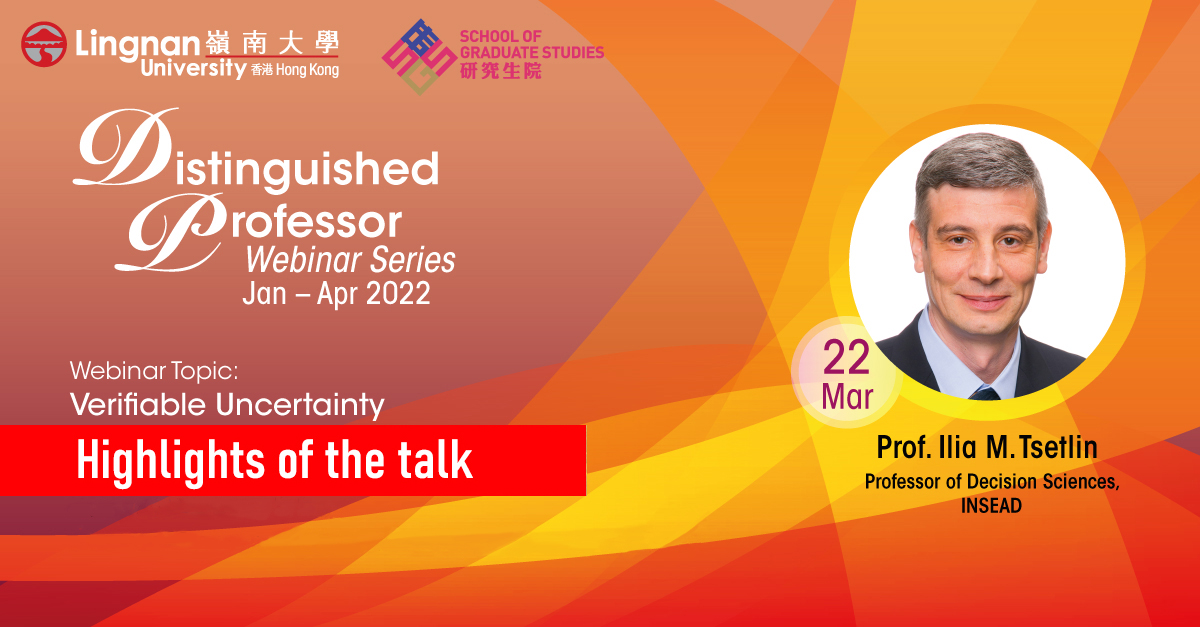Determining probabilities to make better decisions

One stated objective of this year’s Distinguished Professor Webinar Series organised by Lingnan University was to give leading scholars from around the globe the chance to discuss research they are conducting in fields ranging from social sciences to Chinese literature, as well as some of the broader trends and innovations they currently observe.
In keeping with that, Professor Ilia Tsetlin, Professor of Decision Sciences at INSEAD, was invited to deliver a talk on the theme of “Verifiable Uncertainty”. It is an area in which he has won an international reputation, and where his recent work with collaborators and co-authors Jingyuan Li and Fan Wang has prompted new debate about concepts of probability and how they can be interpreted and applied.
Over the years, Tsetlin’s research interests and teaching have generally centred on modelling decisions where uncertainty exists. In particular, he has focused on decision making with multiple attributes, where the situations involved entail some background risk and allow for both target-based and contest-based settings.
His talk, though, dealt mainly with Knightian uncertainty, otherwise known as ambiguity, where it is typically difficult to assign precise probabilities to different possible outcomes.
This is an area of decision theory which has long exercised scholars, inspiring much work of both an empirical and a more abstract nature.
Tsetlin noted, however, that the resulting literature has often been rather vague when it comes to the distinction between known and unknown probabilities. That is especially so in the case of realistic day-to-day scenarios, as opposed to those teed up in an artificial or laboratory setting.
Therefore, the suggested solution he and his colleagues have advanced is the notion of a verifiable lottery. This is equivalent to the classical concept based on a “symmetry of the outcomes”.
From there, the next step has been to develop an axiomatic framework, which allows for a clear distinction between verifiable, or objective, and non-verifiable, or subjective, probabilities.
According to Tsetlin, one powerful illustration of this is the work done on preferences over the income profiles of various groups under the veil of ignorance - a concept well-known to mathematicians and others familiar with the field.
But, he noted, there are also broader implications for both normative and descriptive decision making. For instance, the model could be used to help allocate budgets to different departments or even to maximise social welfare function (SWF) and medical services in a community.
“Our proposed method is to compare verifiable lotteries and then put the method for unverifiable on top of that,” said Tsetlin, whose research has also explored the technicalities and functions of auction theory, negotiation and collective choice. “Our contribution has been to unify several concepts with, for example, the smooth ambiguity model applied to distribution over income profiles. We have also brought some intuition and made a technical contribution by introducing different axiomatic approaches and frameworks for verifiable lotteries. In general, for making decisions, we need to [be able to] assume what might happen with which probabilities.”

